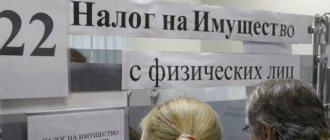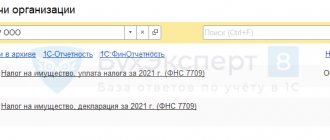In attempts to optimize taxation, companies sometimes resort to dubious schemes that are well known to the Federal Tax Service. As a result, the taxpayer receives not only additional tax assessments, but also penalties. However, there are legal ways to reduce mandatory payments. Let's figure out how to reduce income tax within the law and use these funds to benefit your business.
Legal approach
The legislation offers a whole range of tools for tax optimization - special regimes, benefits, zero rates and targeted preferences. For example, small and medium-sized businesses can switch to a simplified system. This will allow them not to pay VAT and pay tax on their income at reduced rates. However, large organizations and many medium-sized businesses cannot apply preferential treatment. They are faced with the question of how to reduce income tax under OSNO.
Tax is imposed on the difference between income received and expenses incurred in the course of business. The Tax Code strictly stipulates what constitutes income and expenses for the purposes of calculating income tax. Any amateur activity is unacceptable here - this is a direct violation of the law.
It is impossible to talk about ways to reduce income taxes without touching on the topic of gray and black optimization. The most obvious illegal practice is to attribute expenses that did not occur or to inflate the amount of expenses incurred. The Tax Service is actively and very successfully combating such violations. Therefore, in no case should you resort to this “optimization” scheme, as well as other illegal methods. Next, we will consider only legal methods.
Free tax consultation
Payroll taxes and fees
More and more employers are trying to reduce the tax burden in terms of paying mandatory contributions for their employees.
Thus, outsourcing is becoming widespread when third-party organizations are hired to perform a specific function, such as legal. Accordingly, there is no need to pay taxes for such employees. It is also worth considering that some company expenses are not subject to salary taxation, either due to direct provisions of the law (compensation and financial assistance, expenses associated with dismissal and transfers of employees) or, conversely, due to the fact that the law is not included in the employee’s income, although and represent a certain value for the latter (car rental, insurance, corporate fitness, student agreement).
Write-off of losses from previous years
Not every year a company closes with a profit; losses also occur. The legislation allows them to be written off later. When submitting income tax reports, the current period declaration indicates the loss of previous years or part of it. The tax base can be reduced in this way by up to half. If the loss is greater, it can be carried forward to future years. Previously, there was a restriction that allowed losses to be carried forward in this way for 10 years, but now it has been removed.
It happens that losses from previous years are revealed only in the current year. They can be attributed to non-operating expenses, thereby reducing the tax base, and therefore the tax itself.
How to confirm your right to carry forward losses
It is possible to write off losses of previous years at the expense of current profits only if all primary accounting documents have been preserved that confirm the fact and amount of the loss received (clause Article 283 of the Tax Code of the Russian Federation, Article 313 of the Tax Code of the Russian Federation, letter of the Ministry of Finance of the Russian Federation dated 04/03/2007 No. 03-03-06/1/206).
Until the loss is transferred completely, it is necessary to store the entire “primary” one. If there are no primary documents, expenses of previous years cannot be taken into account in the tax base, even if they are reflected in the reports of on-site tax audits (clause 252 of the Tax Code of the Russian Federation, clause 270 of the Tax Code of the Russian Federation).
It is more convenient to store documents electronically. It's free in Diadoc
The period during which it is allowed to reduce the tax base by amounts of previously received losses is significantly longer than the storage period for accounting documents. Knowing this, Federal Tax Service inspectors often request supporting documents as part of desk audits of income statements where the tax base has been reduced due to losses from previous years.
Creation of reserves
An organization may provide in its accounting policies for the creation of the following reserves:
- for doubtful debts;
- for vacation pay;
- for repairs of fixed assets;
- for warranty repairs and maintenance.
This can be very beneficial for optimizing income taxes. Let us explain using the example of the reserve for doubtful debts. The company shipped the goods to customers but did not receive payment. When accounting for income and expenses using the accrual method, she generated income on the date of shipment. And since there is income, it is also subject to income tax. It turns out that there is no money, but 20% of the theoretical amount of income needs to be paid.
To avoid this, a reserve for doubtful debts is created. At the end of the quarter, you need to determine the duration of the delay. If it is more than 45 days, then half of the debt amount is taken into account. If you are overdue for more than 90 days, you can write off the entire amount.
Of course, when counterparties repay their debts, tax will have to be paid. That is, the creation of a reserve can be used to legally obtain a tax deferment. You will need to pay taxes from what you receive, not from your own funds. The advantage of this method is that during the deferment the company’s money remains in operation and generates income.
INCOME TAX OPTIMIZATION
According to Art. 247 ch. 25 of the Tax Code of the Russian Federation, the object of taxation for income tax is the profit of taxpayers, that is, income received reduced by the amount of expenses incurred. From the definition it is clear that to optimize the amount of this tax there are two main approaches:
1) reduce the company’s income;
2) increase the company's expenses.
Let's look at common ways to optimize income taxes related to expenses and income.
Formation of expense reserves
By creating reserves, expenses increase:
- non-operating expenses not related to production and sales can include expenses for the formation of reserves for doubtful debts (Article 266 of the Tax Code of the Russian Federation). Doubtful debt is any debt to the taxpayer arising in connection with the sale of goods, performance of work, provision of services, if this debt is not repaid within the time period established by the agreement and is not secured by a pledge, surety, or bank guarantee. If the taxpayer has a counter-obligation (accounts payable) to the counterparty, doubtful debt is recognized as the corresponding debt to the taxpayer in the part that exceeds the specified payables of the taxpayer to this counterparty;
- expenses for the formation of a reserve for warranty repairs and warranty service (Article 267 of the Tax Code of the Russian Federation). Taxpayers who sell goods (work) have the right to create reserves for upcoming expenses for warranty repairs and warranty service. Deductions for the formation of such reserves are accepted for tax purposes;
- expenses for the formation of a reserve for upcoming repairs of fixed assets (Articles 260, 324 of the Tax Code of the Russian Federation). The taxpayer, who forms a reserve for upcoming repair expenses, calculates contributions to such a reserve based on the total cost of fixed assets and the standards for deductions approved by the taxpayer independently in the accounting policy for tax purposes;
- expenses for the formation of a reserve for upcoming expenses for vacation pay, a reserve for the payment of annual remuneration for length of service (Article 324.1 of the Tax Code of the Russian Federation). A taxpayer who has made a decision on equal accounting for tax purposes of upcoming expenses for paying employees' vacations is obliged to reflect in the accounting policy for tax purposes the adopted method of reserving, determine the maximum amount of deductions and the monthly percentage of deductions to the specified reserve.
For these purposes, the taxpayer is obliged to draw up a special calculation (estimate), which reflects the calculation of the amount of monthly contributions to the specified reserve, based on information about the estimated annual amount of expenses for vacation pay, including the amount of insurance contributions for compulsory pension insurance, compulsory social insurance in case of temporary disability and in connection with maternity, compulsory medical insurance, compulsory social insurance against accidents at work and occupational diseases from these expenses;
EXAMPLE
Let's calculate the amount of contributions to the reserve for vacation pay by month for. It is known that the company decided to make deductions to form a reserve for upcoming expenses for vacation pay.
The planned amount of expenses for paying employees for the year is 36 million rubles , the planned amount of expenses for paying vacations is 3.6 million rubles . (including insurance premiums).
The maximum amount of contributions to the reserve for vacation pay for the corresponding year has been established - 3.7 million rubles .
Table 1 presents data on actual labor costs (including insurance premiums) for the reporting year, detailed by month.
Let’s determine the monthly rate of contributions to the reserve for upcoming expenses for vacation pay:
RUB 3.6 million / 36 million rub. × 100% = 10 %.
Let's calculate monthly contributions to the reserve for vacation pay (Table 2).
In December, contributions should have amounted to 320.0 thousand rubles. (RUB 3.2 million × 10%).
Considering that such an amount would exceed the limit (maximum permissible amount) of the reserve, deductions will amount to 220.0 thousand . rub . (maximum permissible value so as not to exceed the established limit).
- expenses for the formation of reserves for future expenses allocated for purposes ensuring social protection of disabled people (Article 267.1 of the Tax Code of the Russian Federation). Taxpayers - public organizations of disabled people and organizations employing the work of disabled people, can create a reserve for future expenses allocated for purposes that ensure social protection of disabled people. These reserves can be created for a period of no more than five years;
- expenses for the formation of reserves for the depreciation of securities from professional participants in the securities market engaged in dealer activities (Article 300 of the Tax Code of the Russian Federation). Professional securities market participants engaged in dealer activities have the right to expense for tax purposes contributions to reserves for depreciation of securities if such taxpayers determine income and expenses on an accrual basis. In this case, the amounts of restored reserves for the depreciation of securities, deductions for the creation (adjustment) of which were previously taken into account when determining the tax base, are recognized as income of these taxpayers.
Changes to the Tax Code of the Russian Federation allowing to reduce the tax base
1. Labor costs may include expenses for payment for services for organizing tourism, sanatorium-resort treatment and recreation on the territory of the Russian Federation in accordance with the agreement on the sale of a tourism product, provided to employees, their spouses, parents, children (including adopted children) ) under the age of 18, wards under the age of 18, as well as children (including adopted children) under the age of 24, studying full-time in educational organizations, former wards (after termination of guardianship or trusteeship) under the age of 24 years old, full-time students in educational organizations ( Article 255 of the Tax Code of the Russian Federation ):
- services for transporting tourists across the territory of the Russian Federation by air, water, road and (or) rail to their destination and back, or along another route agreed upon in the contract for the sale of a tourist product;
- tourist accommodation services in a hotel(s) or other accommodation facility(s), sanatorium-resort treatment and recreation facility located on the territory of the Russian Federation, including tourist food services, if food services are provided in conjunction with hotel accommodation services or another accommodation facility, sanatorium-resort treatment and recreation facility;
- health resort services;
- excursion services.
2. Income in the form of funds received by an organization free of charge from a business company or partnership of which such an organization is a shareholder (participant), within the amount of its contribution (contributions) to property in the form of funds previously received by the business company or partnership from such an organization , are not taken into account when determining the tax base ( Article 251 of the Tax Code of the Russian Federation ).
3. Income in the form of the results of work on the transfer, reconstruction of fixed assets belonging to the taxpayer on the right of ownership or operational management, carried out by third-party organizations in connection with the creation or reconstruction of another capital construction object (objects) or linear objects of the state is not included in the taxable income of the taxpayer. or municipal property, financed in whole or in part from the budgets of the budget system of the Russian Federation ( Article 251 of the Tax Code of the Russian Federation ) .
4. From 01/01/2020, changes have been made to Art. 250 of the Tax Code of the Russian Federation regarding the classification of income as non-operating : income from equity participation in other organizations paid in the form of dividends also includes income in the form of property (property rights) received by a shareholder (participant) of the organization upon leaving (retiring) from the organization or when distributing the property of a liquidated organization among its shareholders (participants) in an amount exceeding the cost of shares (participants) of such organization actually paid (regardless of the form of payment) by the corresponding shareholder (participant).
Use of legal norms and correct accounting policies
Income tax can be optimized through the correct application of legislation and the correct writing of accounting policies:
- the use of special tax regimes: a single agricultural tax (Chapter 26.1 of the Tax Code of the Russian Federation), a simplified taxation system (Chapter 26.2 of the Tax Code of the Russian Federation), a single tax on imputed income (Chapter 26.3 of the Tax Code of the Russian Federation), etc.;
- division of one legal entity into several, one of which will use a special tax regime to avoid paying income tax. An important point: the method is conditionally legal, but if the tax authorities show interest in companies regarding their relationship, unnecessary questions and proceedings may arise;
- clear distribution of direct and indirect expenses, correct determination of company income in accordance with current legislation. Timely monitoring of changes made to legislation regarding the recognition of income and expenses;
- the possibility of using the right to defer or installment payment of tax (Article 64 of the Tax Code of the Russian Federation);
- the possibility of offsetting overpaid taxes, fees, insurance premiums, penalties, fines against the payment of income tax (Article 78 of the Tax Code of the Russian Federation);
- application of increasing factors to the depreciation rate, indication of such a possibility in the company’s accounting policy (Article 259.3 of the Tax Code of the Russian Federation);
- use of a non-linear depreciation method instead of a linear one (Article 259.2 of the Tax Code of the Russian Federation);
- the use of bonuses based on work results as assistance (the bonus relates to production expenses, and therefore reduces the tax base).
Acquisition and liquidation of fixed assets
If you plan to purchase transport, equipment or other similar objects, you can consider leasing. The necessary equipment will be provided by the lessor, and the company will make payments to him. Until the end of payments, the equipment will be owned by the lessor, and the organization will be able to use it in its activities.
Optimization of income tax is as follows: leasing payments are included in the cost of production and reduce the base. If you buy equipment at your own expense, then only the depreciation amount can be taken into account as expenses.
Often new equipment is purchased to replace old equipment that is subject to write-off. The costs associated with its liquidation - dismantling, dismantling, removal - can be written off as non-operating expenses in the period when the liquidation occurs. These costs also include underaccrued depreciation of written-off objects.
Reserves for holidays, remuneration and securities
Every organization has the right to worry about the future. How will the manager pay for sick leave and vacations? What will happen if securities become cheaper? For this and other cases, a financial reserve is provided. You need to place funds in the reserve in advance, and after sending them for a “rainy day”, add them to the expense item. This move is provided for in Article 25 of the Tax Code of the Russian Federation.
And Article 266 of the Tax Code of the Russian Federation stipulates the situation when funds can be sent to the reserve to pay off doubtful debts. This could be a guarantee or a bank guarantee, the main thing is that the company has the amount to pay off such debt. How is the tax payment reduced in this case? Depends on the type of income tax calculation. The first type is the cash method, the second is the accrual method.
The accrual method is the main one, and it is on it that the emphasis is placed in Article 25 of the Tax Code of the Russian Federation. The cash option has a system of restrictions: it can be applied only if your company did not receive income exceeding 1 million rubles per quarter excluding VAT. And so on for 4 quarters in a row (Article 273 of the Tax Code of the Russian Federation).
Article 272 of the Tax Code of the Russian Federation determines that the accrual method can be used as follows: the costs of creating a reserve can be taken into account in the period in which it was formed, regardless of the actual expenditure of this budget. Thus, you can reduce the amount of income tax at your discretion. This is not an avoidance of payment, but a transfer of it to the next reporting period. In some cases this is very convenient.
And about the bonus. Discounts and promotions that the company offers to customers are also an expense item. It refers to non-operating expenses - they are also deducted from income received during the billing period (subclause 19.1, clause 1, article 265 of the Tax Code of the Russian Federation).
Trademark registration
Many organizations today spend money on a trademark. This is another good example of how you can reduce profits absolutely legally, not only by reducing taxes, but also getting benefits for business. After all, a trademark contributes to the recognition of the company, the formation of customer loyalty and protection from unfair competition.
After receiving documents from Rospatent, the trademark is registered as an intangible asset. The costs for it, provided that they amounted to less than 100,000 rubles, are immediately included in expenses and reduce the income tax base. If a trademark is more expensive, it is subject to depreciation, and its cost is reduced by tax gradually.
Property taxes
With regard to property taxes, especially in terms of corporate taxation, challenging the cadastral value remains one of the optimization tools.
Despite the fact that obtaining a positive result only applies to the next cadastral assessment, reducing the cadastral value for several tax periods (on average 1-3 years) can save (or prevent a significant increase) in this component of the tax burden. Until 2022, leasing was a convenient tool for tax optimization. However, starting from 2022, when only real estate will be subject to corporate property tax, the relevance of leasing will decrease, but will not disappear altogether, since leasing real estate is also possible. The feasibility of this instrument lies in the possibility of writing off the cost of the lease payment as an expense, without thereby increasing the cost of the fixed asset written off through depreciation. In practice, disputes with tax authorities are possible regarding the distribution of the lease payment between payment for the use of the leased asset and its redemption value.
Uniform
Continuing the conversation about the trademark, it is worth mentioning another attribute of the corporate identity of the organization - the uniform of the employees. This is especially true in the field of retail trade and services to the public.
The costs of manufacturing the form are included in labor costs on the basis of paragraph 5 of Article 255 of the Tax Code of the Russian Federation. And they, in turn, lower the tax base. However, for this, 2 conditions must be met:
- uniforms are provided to employees free of charge or at a reduced price;
- the employee receives it as property, that is, after termination of the employment contract there is no need to return it.
Direct expenses
Art. 318 of the Tax Code classifies as direct expenses:
- expenses of the organization when purchasing materials and raw materials that are used in the production of goods, when carrying out work or providing services;
- expenses of the organization when purchasing components for installation or semi-finished products for additional processing;
- expenses for remuneration of employees. This category also includes expenses for compulsory health insurance, insurance in case of temporary disability, medical insurance, social insurance against occupational diseases and accidents, and financing the funded part of the pension. These expenses can be taken into account only if they are accrued for the remuneration of workers involved in the production of goods (performance of work, provision of services);
- amounts accrued for depreciation of fixed assets if they are used in the production of goods, performance of work or provision of services.
The list of direct expenses is open. The organization independently determines its list of direct expenses and consolidates it in its accounting policies.
A special procedure for accounting for direct expenses is that they are taken into account only in the part attributable to goods, work, services or products after processing sold in the current tax or reporting period (paragraph 2, paragraph 2, article 318 of the Tax Code of the Russian Federation). Such expenses must be written off in the period when the products are sold, even if the funds to pay for them were received in the next tax period.
Marketing research
Often companies resort to the services of marketers to study the market in order to increase their sales. If such studies have not yet been conducted, it probably makes sense to think about it. Moreover, the costs for them reduce the income tax base as consultation costs.
However, this is true under one condition - such costs are justified, documented and made in order to increase income. Market research should be conducted on the products or services that the company is engaged in. If it is directed to some third-party products, then the expenses may not be recognized. The Federal Tax Service will decide that the study was fictitious and was carried out solely to reduce income tax.
Employee training
If the organization’s specialists periodically improve their professional level, this will only benefit the business. In addition, training expenses can reduce income taxes - they are written off as other production and sales expenses.
To do this, the following conditions must be met:
- employees sent for training are hired under employment contracts;
- The educational institution with which the agreement is concluded has the right to conduct relevant activities.
VAT
The base rate of value added tax will increase from 18 to 20% from January 1, 2022, which threatens to increase costs for businesses - from directly paying the tax to upgrading the equipment used to calculate it. However, the legislation provides for various VAT benefits that can be used. In particular, these may be benefits for the provision of certain services (medical), the production of certain products (for educational, medical and preschool institutions) and the performance of certain work (research and development work carried out at the expense of budgetary funds). But we should not forget about payments under contracts that are not subject to VAT (sanctions for terminating a rental or leasing agreement if the leased item remains in the use of the customer, or fines for late payment for goods).
Preferential rates
The income tax rate of 20% consists of two parts. In 2022 they are:
- regional - 17%;
- federal - 3%.
For certain categories of taxpayers, federal and regional rates are set at zero. That is, such companies do not actually pay this tax. A 0% rate applies to income received:
- educational and medical organizations;
- organizations providing social services to citizens;
- participants of the Skolkovo project;
- agricultural producers and fisheries organizations.
In addition, the federal portion of income tax is zero for residents:
- free economic zone of Crimea and Sevastopol;
- port of Vladivostok;
- economic zone of the Magadan and Kaliningrad regions;
- tourist and recreational cluster and some other zones.
The regional part of the rate may be lowered by decisions of the authorities of a constituent entity of the Russian Federation for certain categories of payers. Thus, in Moscow for public organizations of disabled people, as well as those who use their labor, the regional rate is set at 12.5%.
When checking an income tax return, the Federal Tax Service may request documents necessary to confirm rights to preferential rates.
Using Benefits
Sadly, not only by law enforcement agencies, but also by the judiciary, the right to account for expenses for tax purposes is perceived as a benefit that must not only be paid for, but also justify to the state the legality of its adoption in order to reduce the tax burden.
At the same time, taxpayers undeservedly pay insufficient attention to classic benefits (use of a reduced rate, depreciation bonus, benefits in relation to income, property not subject to taxation), while this is an opportunity to reduce the tax burden without looking for gaps in legislation and court decisions, but guided by clear indication of the law.
The main reason for non-application of benefits is: a) ignorance of the law; b) fear of refusal by regulatory authorities to subsequently apply such benefits. It should be noted that both reasons can be easily eliminated with the proper approach.
Investment deduction
In addition, there is an investment deduction, which reduces the amount of income tax (not the tax base). The mechanism for its application is prescribed in Article 286.1 of the Tax Code of the Russian Federation. The conditions are:
- In the entity where the taxpayer is located, a law on investment deduction must be adopted.
- The organization must establish in its accounting policies that it has the right to apply this deduction. In order for this right to appear in 2022, it must be recorded in the accounting policy by the end of last year. In the future, this decision cannot be changed for 3 years.
- The deduction applies to objects that were put into operation from the beginning of 2022, or their value was revised after this date.
- The deduction applies to all objects that belong to depreciation groups III-VII.
- The regional part of the income tax can be reduced by up to 90% of the costs incurred by the taxpayer in connection with the acquisition, modernization or reconstruction of fixed assets. Moreover, this part of the tax must be at least 5% of the tax base.
- The federal portion of the tax can be reduced by no more than 10% of the amount of costs. There is no minimum tax established.
So, we looked at how to reduce income tax under OSNO within the framework of the law. Most legal methods come down to properly accounting for expenses. Companies should periodically review their costs. It is likely that funds will eventually be freed up, which can be used to develop the business.
Are planning
First, let us recall what, in fact, income tax is. It is the direct difference between the revenues and expenses of a business enterprise.
You can change the amount of profit either by reducing income or, accordingly, by increasing expenses.
Thus, thanks to some simple manipulations, it becomes possible to significantly lighten the tax burden.
The easiest way to influence the amount of tax collections legally is through competent tax planning.
This optimization method is the most common and popular among businessmen, since when performing certain actions it allows you to significantly reduce the tax burden and not expose yourself to the blows of regulatory structures. So, tax planning methods include:
- timely selection of the correct taxation regime;
- concluding, let’s say, “competent” contracts, with some subtleties;
- application of preferential conditions provided by law;
- friendship with companies enjoying preferential taxation;
- offshore;
- active use of the right to tax deferrals;
- favorable tax calculation schemes prescribed in the accounting policy of the enterprise.
These are just some of the ways to influence the tax base through planning. Some of them do not require any additional comments from lawyers or complex organizational arrangements, others, for example, offshores, are possible only with large financial investments. Let's look at the most popular and safe tax optimization methods in more detail.







